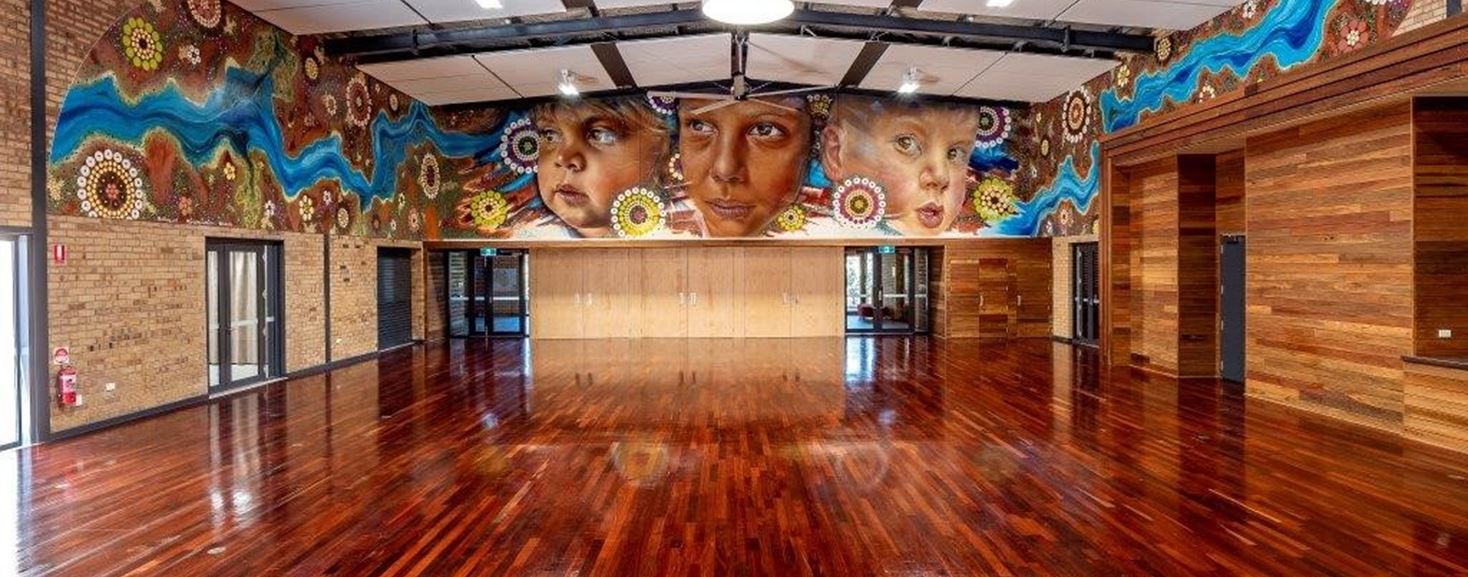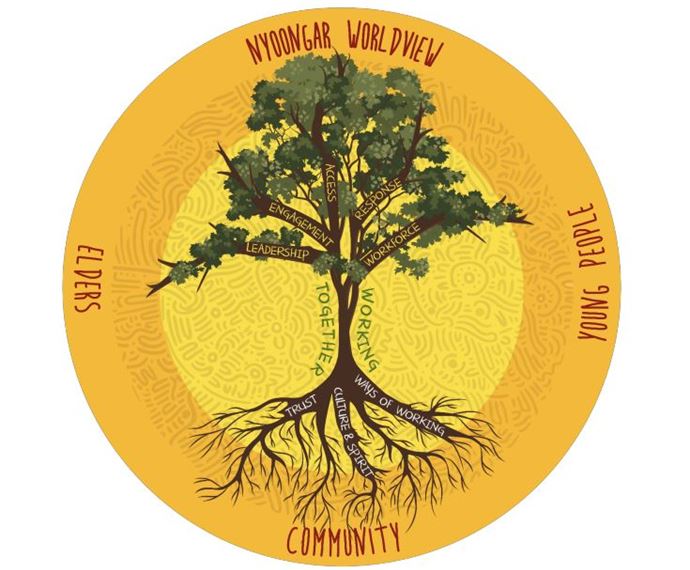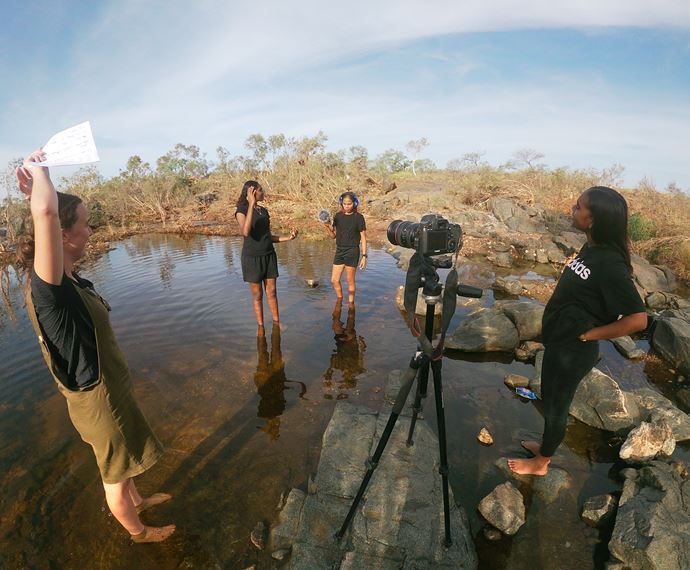A community hub supporting change for local people
The City of Armadale is one of WA’s fastest-growing local government areas, with a current population of 97,705, expected to increase by 55% over the next 20 years. In recent years, the City has undergone a period of investment, transformation, and development with the assistance of the Armadale Redevelopment Authority.
Since 1992, Lotterywest has supported the City with 82 grants totalling approximately $8.8 million.
Through a grant for a community hub, the City improved its capacity to provide effective and culturally appropriate community services as well as connecting the community with the natural environment.
To extend and upgrade the Champion Centre, the Seville Grove Community facility, and the outdoor community areas at the Bob Blackburn Reserve in order to provide effective and culturally appropriate community services as well as connecting the community with the natural environment inthe City of Armadale.
City of Armadale
3/15/2017
$29,410,000
Lotterywest
$4,060,000
Perth and Metro Area
General Community
- Close collaboration between the City of Armadale's Aboriginal Development Team and service providers to support change for locals.
- Creation of open plan 'hot desk' arrangement for up to 24 external organisations.
- Government agencies, not-for-profit organisations and community groups co-located within the Centre.
- Extensive community consultation helped to properly identify needs and opportunities.
- A wide range of community and sector stakeholders were engaged via focus groups, meetings, surveys, interviews, and informal discussions and provided feedback to develop the future usage of the Bob Blackburn Reserve.
- The redeveloped Centre offers an open plan ‘hot desk’ arrangement for up to 24 external organisations at any one-time, maximising the space and creating collaboration opportunities.
- Organisations also have access to the other amenities, including meeting rooms, informal areas, kitchen, main hall and outdoor spaces.
- Retrofitting older facilities generally has challenges. The City has continued to undertake upgrades, particularly to the roof and air-conditioning of the Champion Centre following the initial project. These costs needed to be considered when scoping projects.
- It took some time to change the City’s administrative and governance procedures to allow for the types of flexible arrangements required for the Champion Centre model to accommodate the community interest and demand. Factoring the required changes to policies earlier may have supported a smoother transition.

Opportunity
Research suggests the integration of social services at a local scale can provide better experiences for people needing to access services[1]. Place-based, ‘one-stop-shop’ approaches also support service providers to cooperate and coordinate efforts and help overcome people’s challenges with integrated solutions.
Comprehensive masterplans and feasibility studies were completed by the City of Armadale, identifying the infrastructure upgrades required to deliver additional programs and activities to address the complex and long-term issues being experienced by the community.
The existing Champion Centre was a highly valued community centre supporting programs and activities for Aboriginal and Torres Strait Islander people and was experiencing increased demand prior to the grant.
Approach
This initiative allowed the City of Armadale to extend and upgrade the Champion Centre, the Seville Grove Community facility, and the outdoor community areas at the Bob Blackburn Reserve. The development focussed on a place-based response to community need and was supported with funds from the City of Armadale, Lotterywest, the Department of Sport and Recreation, and the Department of Infrastructure and Regional Development.
The Champion Centre’s capacity was increased to become a fit for purpose, culturally appropriate one-stop-shop to accommodate multiple not-for-profit organisations, local groups and service providers working in partnership to deliver targeted programs for families and children, focusing on the local Aboriginal community. The redeveloped facility aimed to encourage collaboration between the centre's organisations and to provide a streamlined, comprehensive response to the complex needs of vulnerable families.
For the Seville Grove Library, the focus was on improving community spaces to increase connectivity to the Champion Centre and provide free and low-cost community access to a digital hub and training area.
Outdoor spaces were also enhanced to form an interconnected community hub across the eight facilities within the reserve. This included a ‘yarning circle’, Aboriginal art installations, rehabilitation of bushland, an outdoor classroom and nature play areas to help the community reconnect with the natural environment.
Impacts and outcomes
The Aboriginal Development Team works closely with each service provider at the Champion Centre to help support change for local people. The redeveloped Centre offers an open plan ‘hot desk’ arrangement for up to 24 external organisations at any one-time, maximising the space and creating collaboration opportunities. Organisations also have access to the other amenities, including meeting rooms, informal areas, kitchen, main hall, and outdoor spaces.
The government agencies, not-for-profit organisations, and other community groups working in partnership with the City of Armadale from the Centre include:
- Muggin Aboriginal Corporation
- Save the Children
- Sister Kate's Home Kids Aboriginal Corporation
- Wungening Aboriginal Corporation
- Yorgum Aboriginal Corporation
- Anglicare WA - Mental health carer support
- Richmond Fellowship Partners in Recovery
- Community health
The Champion Centre receives 200 visitors per week and hosts network lunches every month for service organisations, and the South East Metro Emergency Relief Forum.
What worked
Extensive community consultation helped to properly identify needs and opportunities
A wide range of community and sector stakeholders were engaged via focus groups, meetings, surveys, interviews, and informal discussions. Their feedback helped develop the future usage of the Bob Blackburn Reserve.
“The City carried out research that identified what the community saw as most valuable and we have incorporated and enhanced these areas.”
Henry Zelones, Armadale Mayor
Key challenges
Retrofitting older facilities generally has challenges
The City has continued to undertake upgrades, particularly to the roof and air-conditioning of the Champion Centre following the initial project. These costs needed to be considered when scoping projects.
It was a long process to change policies and procedures
It took some time to change the City’s administrative and governance procedures to allow for the types of flexible arrangements required for the Champion Centre model to accommodate the community interest and demand. Factoring the required changes to policies earlier may have supported a smoother transition.
REFERENCES
- Hart, A. and J. Connolly, Commonwealth place‐based policies for addressing geographically concentrated disadvantage: A typology and critical analysis. Australian Journal of Public Administration, 2021.
- https://www.armadale.wa.gov.au/media-releases/new-look-champion-centre-and-seville-grove-library-unveiled
Learn about wellbeing
Understand how your community is going to help you to better target and plan your project.
Ready to plan your project?
Understand your vision, plan your impact and report on the outcomes of your project with three easy interactive tools in the Community Impact Planner.
Acknowledgement of Country
The Western Australian Community Impact Hub acknowledges and pays respect to the Traditional Owners of the land on which we are based, the Whadjuk people of the Noongar Nation and extends that respect to all the Traditional Owners and Elders of this country. We recognise the significant importance of their cultural heritage, values and beliefs and how these contribute to the positive health and wellbeing of the whole community.

